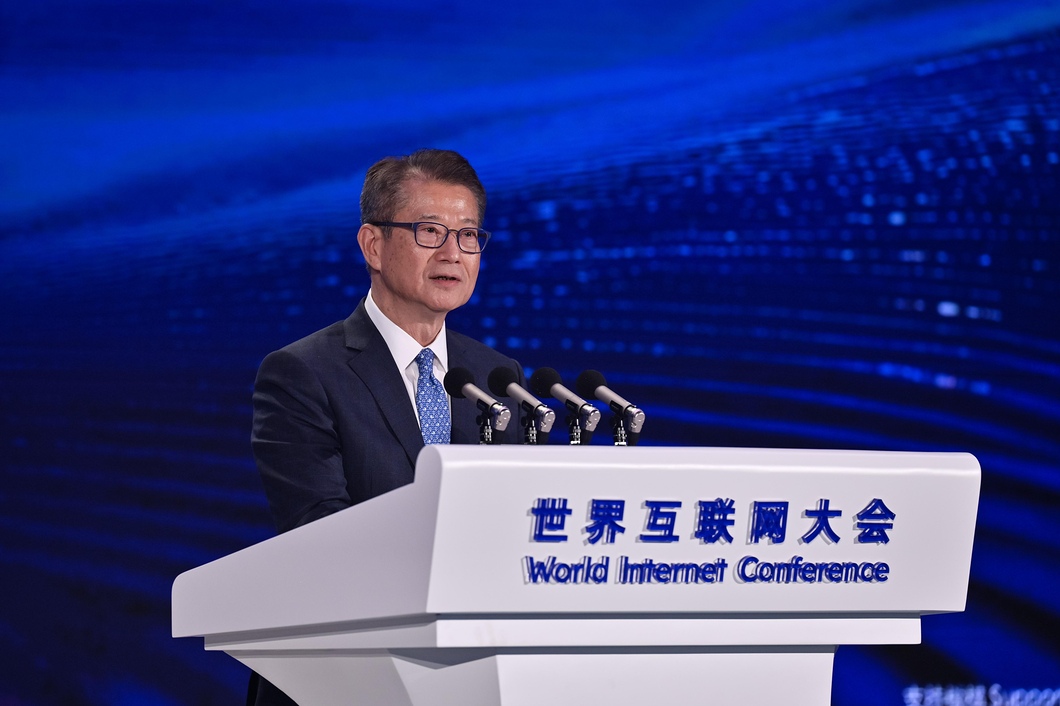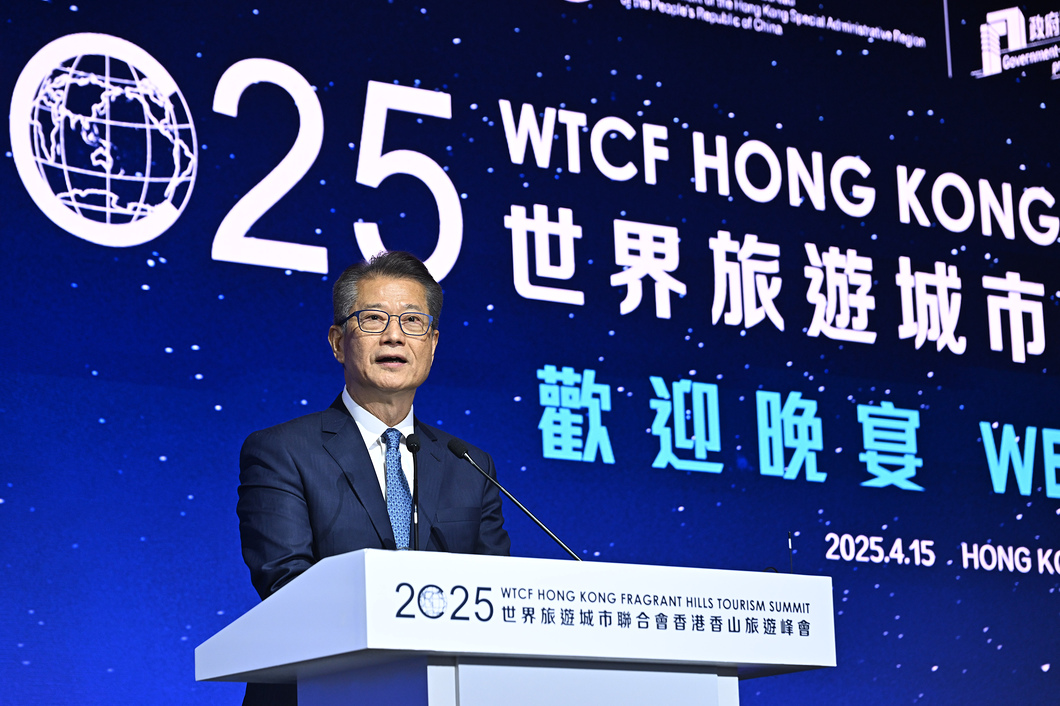Blog
Driving High-quality Development with Our Unique Strengths
The United States (US) has imposed the so-called "reciprocal tariffs" on its trading partners and is continuously adjusting the rates. This has not only severely disrupted the global trade order and the stability of supply chains, but also significantly increased uncertainty in the international trade and investment environment. Such reckless protectionist measures have raised widespread concerns in the market. Many economists have predicted rising inflation, economic slowdown and even a potential recession in the US. Meanwhile, the tariff war is expected to affect the global economic outlook, leading to a slowdown in global economic growth.
Judging from the reactions from countries around the world, the unilateral provocation of a tariff war by the US is not only backfiring on its own economy but also pushing it toward isolation. This sentiment has been particularly evident in our recent discussions with business leaders from various countries. They have unanimously criticised the current actions of the US authorities. They have emphasised that in today's turbulent geopolitical climate, global businesses are striving to expand in a transparent, open and stable policy environment.
In this complex external environment, Hong Kong, as a highly externally-oriented economy, will inevitably be affected. We must acknowledge that the current shifts in the international trade landscape will be structural in the medium to long term. It is essential to harness the strengths of our community and respond with the support of our country. By adopting proactive and targeted policy measures, we will turn challenges into opportunities, and continue to advance high-quality and sustainable economic development amid these changes.

|
| Last week, I delivered a speech at the World Internet Conference Asia-Pacific Summit - Main Forum on the Digital Intelligence Future. |
At this moment, the most effective strategy for addressing challenges is to do our work well with full speed and determination. First, we must ensure a safe and stable environment in Hong Kong that protects national security and financial stability. Economic security is the foundation of Hong Kong's prosperity and stability, and we should demonstrate to the international community that Hong Kong is a safe haven for global capital.
Second, we need to effectively communicate Hong Kong's unique status and advantages under the "one country, two systems" arrangement to the international community. This includes our role as a tariff-free port with a common law system and the characteristics of an international financial centre. We must also continue to enhance Hong Kong's business environment. Many multinational companies invest in Hong Kong precisely because they recognise our strengths in connectivity, robust rule of law, international character, a welcoming business environment, an inclusive culture, and our link to the Mainland, which is the largest and most dynamic consumer and innovation market globally. As the tariff war disrupts the global economy and trade, Hong Kong is playing a crucial role as a "super connector", providing new development opportunities for global businesses and capital.
Many friends in the business community have shared with me that, given the challenges presented by the tariff war, it is crucial for Hong Kong to maintain its status as a free port and implement free trade policies. This will provide a stable and predictable business environment, allowing businesses to operate in Hong Kong with confidence. In fact, many companies are adjusting their strategies, shifting from primarily linking the Mainland with Europe and the US to exploring trade opportunities between the Mainland and emerging markets in Asia. They are particularly optimistic about ASEAN, a market characterised by its large size, youthful population, and rapidly growing middle class and consumer markets.
As a free port, Hong Kong facilitates flexible logistics and warehousing, allowing companies to execute their plans for market expansion. The strong relationship between our country and the ASEAN region, coupled with the deep integration of industrial and supply chains, positions Hong Kong as a key player in areas such as supply chain management, trade financing as well as Environmental, Social and Governance (ESG) consultancy.

|
| Last week, I gave a speech at the Welcome Dinner of the 2025 World Tourism Cities Federation Hong Kong Fragrant Hills Tourism Summit. |
Moreover, many friends in the financial market have recently indicated that international capital has been accelerating its allocation to the Hong Kong and the Mainland markets over the past few months. Some newly listed Mainland companies have seen a substantial increase in foreign capital subscription compared to the past two years. Meanwhile, some foreign financial institutions have reported expanding their scale of operation and hiring in Hong Kong; some others have transferred senior personnel from other regions to the city. These developments reflect two major trends: first, the resilience of our country's economy, breakthroughs in innovation and technology, and the continued deepening of high-level opening-up policies have resulted in a "fear of missing out" among international investors regarding investment opportunities on the Mainland. Second, the unilateralism and policy uncertainties of the US have prompted international capital to accelerate risk diversification and increase their allocations in the Mainland and Hong Kong markets. Undoubtedly, this shift in investment dynamics from West to East is gradually becoming more pronounced.
Amid global changes, both our country and Hong Kong offer a wealth of new investment opportunities. We also maintain a leading position in various cutting-edge technologies. By hosting more large-scale thematic summits, international conferences and mega events that cater to the prevailing trends, Hong Kong can help business communities and investors around the world better understand the vast opportunities available in our country and the city, thus enabling them to join in and share the fruits.
Last week, Hong Kong hosted two large international conferences on different themes — the World Internet Conference Asia-Pacific Summit and the 2025 World Tourism Cities Federation Hong Kong Fragrant Hills Tourism Summit. Both events attracted keen participation from political and business representatives, industry leaders and scholars from numerous countries and regions.
The World Internet Conference, which has been held in the Mainland since 2014, hosted its Asia-Pacific Summit outside the Mainland for the first time this year, marking Hong Kong's inaugural hosting of a state-level summit of this kind. The theme of the summit was "Integration of AI and Digital Technologies Shaping the Future - Jointly Building a Community with a Shared Future in Cyberspace", where participants discussed various developments and trends in the fields of the Internet, digital technology and innovation. Additionally, the Fragrant Hills Tourism Summit, held for the first time in Hong Kong, underscored the city's significant role as an international tourism hub.
Many participants at the two summits expressed similar optimistic views on the development prospects of both our country and Hong Kong. Leveraging the advantages of the "one country, two systems" arrangement, Hong Kong can enhance its roles as a "super connector" and "super value-adder". This will not only promote pragmatic co-operation between the country and the rest of the world in relevant areas, creating more opportunities for economic and social progress; but also deepen ties and friendships among all parties involved.
April 20, 2025